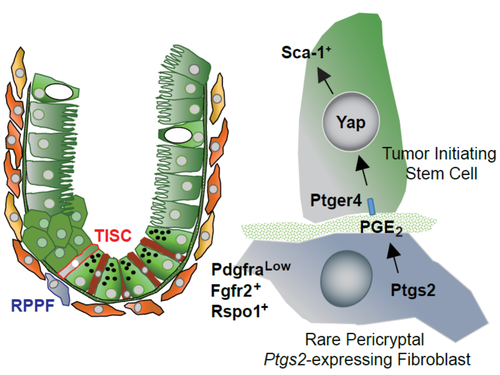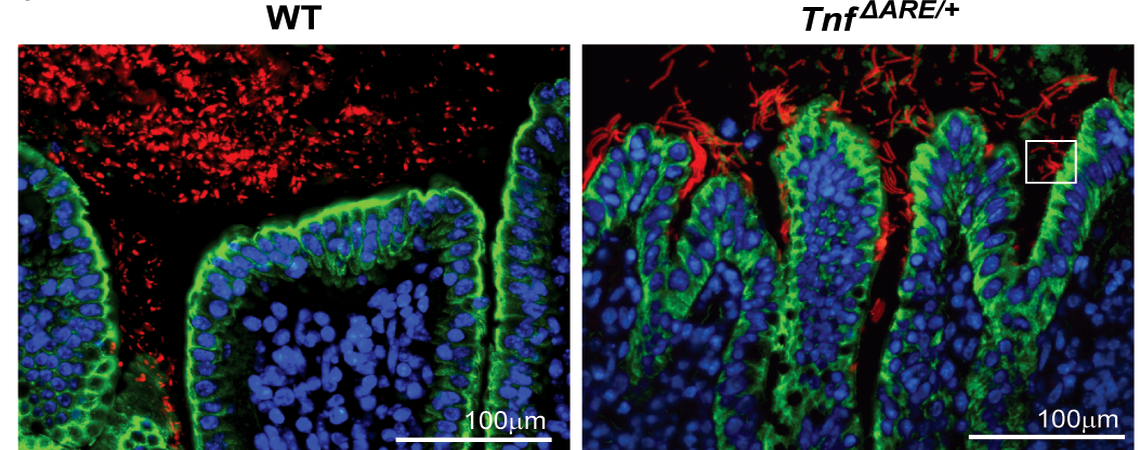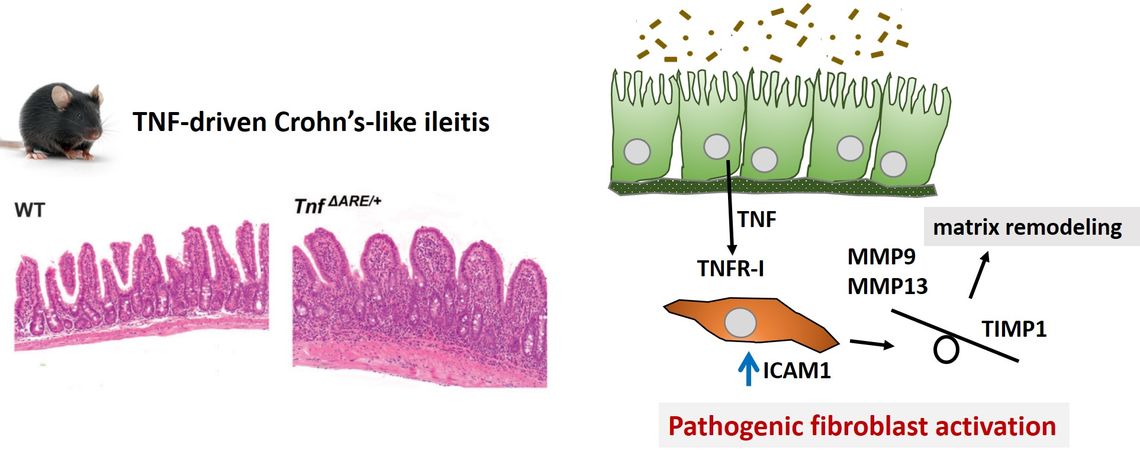Selected Publications
Paracrine orchestration of intestinal tumorigenesis by a mesenchymal niche.
Nature. 2020

Colon cancer initiation is a probabilistic process, whereby mutant epithelial stem cells compete with normal stem cells in crypts. In this paper, we demonstrated that the odds of intestinal tumorigenesis are controlled by the native mesenchymal microenvironment of tumor initiating cells. We discovered a rare type of Ptgs2/Cox-2-expressing fibroblasts which exert paracrine control over mutant stem cells by secreting prostaglandin E2. This mechanism may explain the preventive effect of Cox-2 inhibitors (non-steroid anti-inflammatory drugs) against colon cancer in humans.
Behind the paper - Research highlight - Lay summary
Host and microbiota interactions are critical for development of murine Crohn's-like ileitis.
Mucosal Immunology. 2016

In this paper, which was a collaborative effort between the Kollias lab (Alexander Fleming, Greece) and the Lira lab (Icahn School of Medicine at Mount Sinai, NY), we showed that ileitis development in mice that overexpress TNF, depends on the indigenous microbiota and their innate recognition through Myd88. Chronic inflammation in these mice, leads to a gradual loss of Paneth cells in the epithelium, defective antimicrobial control and alterations in the microbiota ("dysbiosis"), including an expansion of epithelial-attaching segmented filamentous bacteria. Pictures by Gerold Bongers.
Intestinal myofibroblast-specific Tpl2-Cox-2-PGE2 pathway links innate sensing to epithelial homeostasis.
PNAS. 2014

Fibroblasts are well known for their structural role in tissues, but they can do more. In this paper, we found that following injury of the intestinal epithelial barrier, sub-epithelial fibroblasts sense the inflammatory milieu and promote homeostatic epithelial proliferation, thereby protecting from colitis development. This is mediated by the activation of a Tpl2-Cox-2-Prostaglandin E2 pathway. Key genes in this mechanism, including the Tpl2-encoding MAP3K8 gene, are genetically associated with Inflammatory Bowel Diseases in genome-wide association studies in humans.
Intestinal epithelial cells as producers but not targets of chronic TNF suffice to cause murine Crohn-like pathology.
PNAS. 2011

In this paper, we focused on the earliest mechanisms that drive chronic inflammation in the intestine. We found that overexpression of TNF (a key inflammatory cytokine), by intestinal epithelial cells is sufficient to initiate a spontaneous, chronic ileitis pathology in mice, which strongly resembles human Crohn's disease. Epithelial cell-derived TNF activates sub-epithelial fibroblasts at a very early stage, before the onset of inflammation and the infiltration of immune cell populations in the tissue. These results emphasize the importance of local epithelial-mesenchymal interactions in the initiation of chronic inflammatory responses in the gut.

